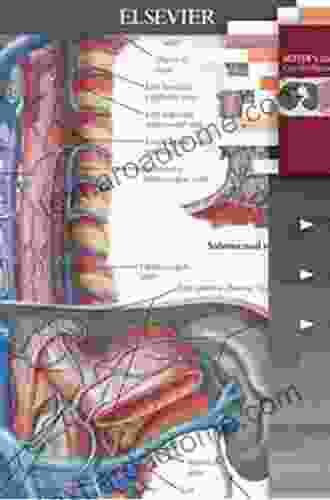Mental Health Self Help: A Guide for Consumers and Families

Mental health conditions affect millions of people worldwide, and they can have a significant impact on individuals, families, and communities. Fortunately, there are a number of effective self-help strategies that can help people manage their mental health conditions and improve their quality of life.
This comprehensive guide provides essential information and resources for individuals and families seeking support for mental health conditions. It covers a wide range of topics, including:
- Understanding mental health conditions
- Self-help strategies for managing mental health conditions
- Support groups for individuals and families
- Professional treatment options for mental health conditions
- Resources for finding mental health services
Mental health conditions are a diverse group of disFree Downloads that affect a person's thoughts, feelings, and behavior. They can range from mild to severe, and they can affect people of all ages, genders, and backgrounds.
4.1 out of 5
| Language | : | English |
| File size | : | 1122 KB |
| Text-to-Speech | : | Enabled |
| Screen Reader | : | Supported |
| Enhanced typesetting | : | Enabled |
| Word Wise | : | Enabled |
| Print length | : | 525 pages |
Some of the most common mental health conditions include:
- Anxiety disFree Downloads
- Mood disFree Downloads
- Psychotic disFree Downloads
- Eating disFree Downloads
- Substance use disFree Downloads
Mental health conditions can be caused by a variety of factors, including genetics, life experiences, and brain chemistry. They can also be triggered by major life events, such as the death of a loved one or a traumatic experience.
There are a number of effective self-help strategies that can help people manage their mental health conditions. These strategies can include:
- Learning about mental health conditions. The more you know about your mental health condition, the better equipped you will be to manage it. There are a number of resources available to help you learn about mental health conditions, including books, websites, and support groups.
- Practicing self-care. Self-care is important for everyone, but it is especially important for people with mental health conditions. Self-care includes activities that help you to manage your stress, improve your mood, and get enough sleep.
- Setting realistic goals. When you are managing a mental health condition, it is important to set realistic goals for yourself. Don't try to do too much too soon. Start by setting small, achievable goals and gradually work your way up to larger goals.
- Breaking down tasks. If you have a large task to complete, break it down into smaller, more manageable tasks. This will make the task seem less daunting and more achievable.
- Asking for help. There is no shame in asking for help when you need it. If you are struggling to manage your mental health condition, don't hesitate to reach out to a friend, family member, or mental health professional.
Support groups can provide a valuable source of support for individuals and families coping with mental health conditions. Support groups can provide a safe and supportive environment where people can share their experiences, learn from others, and find practical advice.
There are a number of different types of support groups available, including groups for individuals with specific mental health conditions, groups for family members of people with mental health conditions, and groups for people who have experienced trauma.
To find a support group in your area, you can contact your local mental health center or hospital. You can also search online for support groups in your area.
If you are struggling to manage your mental health condition on your own, you may need to seek professional help. There are a number of different types of professional treatment options available, including:
- Psychotherapy. Psychotherapy is a type of talk therapy that can help you to identify and change negative thoughts and behaviors that are contributing to your mental health condition.
- Medication. Medication can be used to treat a variety of mental health conditions, including anxiety disFree Downloads, mood disFree Downloads, and psychotic disFree Downloads.
- Inpatient treatment. Inpatient treatment programs provide intensive treatment for people with severe mental health conditions. Inpatient treatment programs typically last for 30 to 90 days.
- Outpatient treatment. Outpatient treatment programs provide less intensive treatment for people with mild to moderate mental health conditions. Outpatient treatment programs typically involve weekly or bi-weekly therapy sessions.
The type of professional treatment that is right for you will depend on your individual needs. Your doctor can help you to determine the best course of treatment for you.
If you are looking for mental health services, there are a number of resources available to help you find the services you need. These resources include:
- Your doctor. Your doctor can refer you to a mental health professional or help you to find a support group in your area.
- Your local mental health center or hospital. Mental health centers and hospitals offer a variety of mental health services, including psychotherapy, medication, and support groups.
- Your insurance company. Your insurance company can help you to find mental health services that are covered by your insurance plan.
- Online directories. There are a number of online directories that can help you to find mental health services in your area.
Mental health conditions can be a challenge, but they are not insurmountable. With the right support, people with mental health conditions can live happy, fulfilling lives. This guide provides essential information and resources for individuals and families seeking support for mental health conditions. We hope that this guide will help you to find the support you need to manage your mental health condition and improve your quality of life.
4.1 out of 5
| Language | : | English |
| File size | : | 1122 KB |
| Text-to-Speech | : | Enabled |
| Screen Reader | : | Supported |
| Enhanced typesetting | : | Enabled |
| Word Wise | : | Enabled |
| Print length | : | 525 pages |
Do you want to contribute by writing guest posts on this blog?
Please contact us and send us a resume of previous articles that you have written.
 Book
Book Novel
Novel Page
Page Chapter
Chapter Text
Text Story
Story Genre
Genre Reader
Reader Library
Library Paperback
Paperback E-book
E-book Magazine
Magazine Newspaper
Newspaper Paragraph
Paragraph Sentence
Sentence Bookmark
Bookmark Shelf
Shelf Glossary
Glossary Bibliography
Bibliography Foreword
Foreword Preface
Preface Synopsis
Synopsis Annotation
Annotation Footnote
Footnote Manuscript
Manuscript Scroll
Scroll Codex
Codex Tome
Tome Bestseller
Bestseller Classics
Classics Library card
Library card Narrative
Narrative Biography
Biography Autobiography
Autobiography Memoir
Memoir Reference
Reference Encyclopedia
Encyclopedia Margaret Atwood
Margaret Atwood Mark Stavish
Mark Stavish Mary E Davis
Mary E Davis Melissa Ritchey
Melissa Ritchey Matteo Ferrari
Matteo Ferrari Matt Rudnitsky
Matt Rudnitsky Mary Gail Frawley O Dea
Mary Gail Frawley O Dea Mary Lou Heiss
Mary Lou Heiss Marco Cantu
Marco Cantu Reginald A Lawson
Reginald A Lawson Phil Goss
Phil Goss Marcelo Gleiser
Marcelo Gleiser Mary Ann Lund
Mary Ann Lund Marie Warder
Marie Warder Mayank Johri
Mayank Johri Master Choa Kok Sui
Master Choa Kok Sui Nicole Grimes
Nicole Grimes Timothy Hampton
Timothy Hampton Melody Love
Melody Love Yvonne Baskin
Yvonne Baskin
Light bulbAdvertise smarter! Our strategic ad space ensures maximum exposure. Reserve your spot today!

 Hunter MitchellSavor the Delights of Old Italy: Embark on a Culinary Journey with "250...
Hunter MitchellSavor the Delights of Old Italy: Embark on a Culinary Journey with "250... F. Scott FitzgeraldFollow ·8.7k
F. Scott FitzgeraldFollow ·8.7k Enrique BlairFollow ·13.5k
Enrique BlairFollow ·13.5k Ricky BellFollow ·10.6k
Ricky BellFollow ·10.6k Richard SimmonsFollow ·5k
Richard SimmonsFollow ·5k Houston PowellFollow ·4.2k
Houston PowellFollow ·4.2k Arthur MasonFollow ·13.4k
Arthur MasonFollow ·13.4k Matt ReedFollow ·12.6k
Matt ReedFollow ·12.6k William WordsworthFollow ·15k
William WordsworthFollow ·15k

 Ralph Ellison
Ralph EllisonIntelligent Video Surveillance Systems: The Ultimate...
In a world...

 Jeffrey Cox
Jeffrey CoxThe Origins of the Modern World: A Journey to the Roots...
Embark on an Extraordinary...

 Paulo Coelho
Paulo CoelhoUnlock the Power of Integrated Medical Imaging with...
In the rapidly evolving...

 Charles Reed
Charles ReedThe Christ of the Covenants: Unlocking the Mystery of...
Embark on a Profound...

 Elton Hayes
Elton HayesComputational Hydraulics: A Comprehensive Guide for...
In the realm of fluid dynamics,...
4.1 out of 5
| Language | : | English |
| File size | : | 1122 KB |
| Text-to-Speech | : | Enabled |
| Screen Reader | : | Supported |
| Enhanced typesetting | : | Enabled |
| Word Wise | : | Enabled |
| Print length | : | 525 pages |










